Ever wonder about the origins of the Itsekiri people and their role in Nigerian history? You’re in for a fascinating journey. The Itsekiri are an ethnic group located in the Niger Delta region of Nigeria, with a rich culture, language, and history that spans over 500 years. As a people, the Itsekiri have faced immense challenges and changes, from the slave trade era to the discovery of oil in their lands. Yet they have persevered and maintained a strong sense of identity.
This article will explore the roots of the Itsekiri, their intriguing language, cultural practices, and their place in Nigerian history. By the end, you’ll have a deeper appreciation for this remarkable yet understudied group. The Itsekiri story is one of resilience, innovation, and a people determined to shape their own destiny against all odds.
About the Itsekiri People
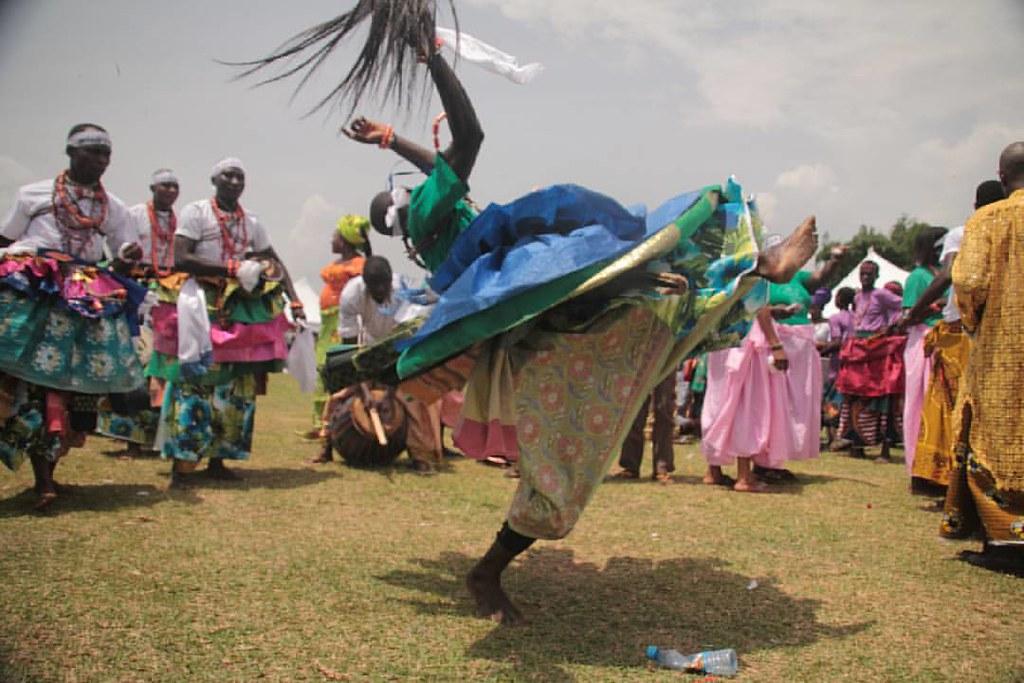
The Itsekiri (also known as the Isekiri, iJekri, Itsekri, Ishekiri, or Itsekhiri) are a Yoruboid subgroup of Nigeria’s Niger Delta area. They speak the Yoruboid language and can be found in Delta State. Itsekiri people live mainly in the Warri South, Warri North, and Warri South West local government districts of Delta State on the Atlantic coast of Nigeria. Significant communities of Itsekiris can be found in parts of Ondo and Edo states and in various Nigerian cities, including Abuja, Lagos, Port Harcourt, and Benin City. The population of the Itsekiri people is currently about 2.7 million.
Traditionally, the Itsekiri were fishermen and traders. They built canoes and sold fish, crops, and goods along the Niger River. Today, many Itsekiri work in the oil industry or commerce. Itsekiri language belongs to the Yoruboid branch of the Volta-Niger group of languages.
The Itsekiris are related to the Yoruba of South Western Nigeria, as well as the Okpe and Edo people. The Itsekiris historically refer to their kingdom as the Kingdom of Warri, or ‘Iwere’ as its actual name, which is geographically adjacent to the three Warri local government districts. The region is a vital hub for Nigeria’s crude oil and natural gas production, as well as petroleum refining, and the main town of Warri (a multi-ethnic city) serves as the Delta State region’s industrial and economic hub.
Itsekiri celebrates festivals to honor water spirits and harvest festivals. Music, dance, and masquerades are central to these festivities. The Itsekiri also value family, community, and their monarch, the Olu of Warri.
The Origins and History of the Itsekiri
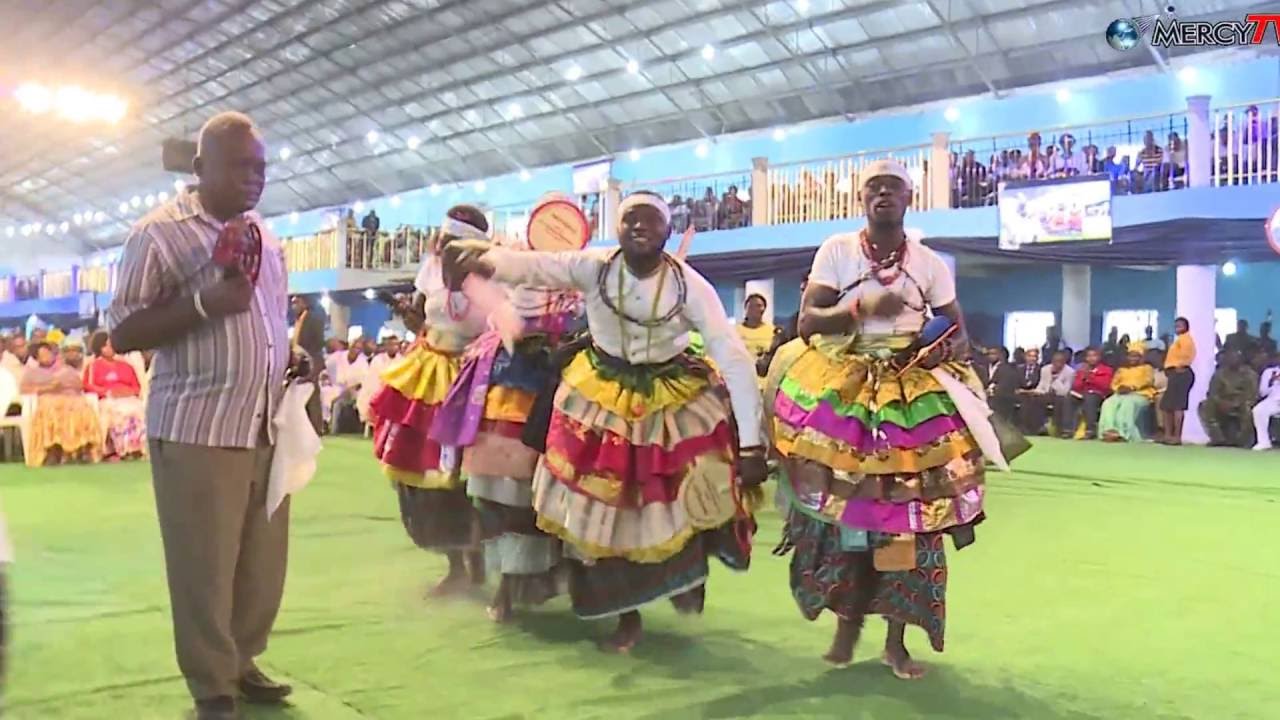
According to Jackson Omasanjuwa Ireyefoju and Florence Ejuogharanmakelesan Ireyefoju’s written work “Ife Oracle in Itsekiri Social System of Nigeria,” Itsekiri people initially arrived in Nigeria from Egypt following the battle of Actium in 31 B.C. They arrived in the present-day Warri Kingdom in approximately 28 B.C. and were established in Gborodo, Ureju, and Ode Itsekiri. Their history in Nigeria began around the 15th century with Prince Iginuwa (Ginuwa), the eldest son of Oba Olua, the fourteenth Oba of Bini (Benin) kingdom. Because of his arrogance, the crowned prince had many enemies among the chiefs, and his father, the then Oba Olua, had prepared a secret expedition of no return with the eldest sons of the chiefs.
When they arrived at the bank of the River Ethiope, the crowned prince appeared, decked in kingship regalia, and declared himself king (without kingdom). They first settled in Ugharegin, then in Efurokpe, but later relaunched a new long voyage through the high waves of the Forcados River and landed in a small settlement of beauty and wonder called Amatu for a while, but had to move on for an ore fertile land because Amatu, with all its wonders, was unproductive. This time, their trip has taken them to Oruselemo, a more fruitful area inhabited by the Ijaws. Prince Iginuwa married an Ijoh woman named Derumo there as well. After a few years, a conflict occurred between the migrants and the Ijaw people of Gulani (Ogulagha). As a result, the prince killed Derumo.
The prince decided it would be more practical to relocate, so the ark was relaunched, and they sailed across the Focados and Warri rivers to a virgin territory that would later be known as Ijala. He had two sons there, Prince Ijijen (Ijiyem) and Prince Irame. But, not long after they took refuge, Bini learned of their whereabouts, and an army was dispatched to bring the fugitive prince and his company back. The news reached Ijala, and the mobile kingdom began preparing to relocate; hence, Ijijen spearheaded the movement.
Another source identified that the origins of the Itsekiri people date back to the 15th century. According to oral history or myth, the Itsekiri migrated from Benin to their present location in the Niger Delta. Initially, they settled in Ode-Itsekiri (old Warri), then moved to Big Warri around 1480. The ruler, Olu Ginuwa I, established the Itsekiri kingdom, with headquarters at Ode-Itsekiri. After the Portuguese visited Warri in the 15th century, the son of the reigning Olu was sent to Portugal and returned with a Portuguese wife at the beginning of the 17th century. In the 1640s, their son Antonio Domingo was Olu of Warri. Olu Erejuwa, who reigned from approximately 1720 to 1800, used the Portuguese to extend Warri’s independence from Benin and to gain control over a larger territory.
The Itsekiri monarchy is still in place today, with Ogiame Olu Atuwatse III reigning over the Warri Kingdom. Ode-Itsekiri (also known as “big warri” or “Ale iwerre”) is the historical capital of the Itsekiri, but the monarch’s main palace is in Warri town, the largest city in the area and home to many other communities, including the Ijaws, Urhobos, Isoko, and many other Nigerian and expatriate groups working in the oil and gas industry.
The Itsekiri Language
The Itsekiri language is a dialect of the Yoruba language, with some similarities as well as distinct differences. They are a people of mixed ethnic origins who speak a language that is very similar to the Yoruba language of southwestern Nigeria and the Igala language of central Nigeria but which has also borrowed some cultural practices from the Ijebu people, Ile-Ife, and Benin, Itsekiri engaged with Portuguese in trade terminologies, as they were the first people in Nigeria to establish contact with the Portuguese who were exploring the West African coast. Although linguistically connected to the Yoruba and Igala ethnic groupings, modern Itsekiris are of mixed ethnic origins due to centuries of intermarriage.
Unlike nearly all other important Nigerian languages, Itsekiri has no dialects and is uniformly spoken with little or no variation in pronunciation, with the exception of the use of ‘ch’ for the regular ‘ts’ (sh) in the pronunciation of some individual Itsekiris, e.g., Chekiri instead of the standard Shekiri, but these are individual pronunciation traits rather than dialectal differences. This could be a vestige of previous dialectal distinctions. The English language continues to have a significant impact on the Itsekiri language, both in terms of development and widespread use as a first language among the younger population. Modern standard Yoruba (the variant spoken in Lagos) appears to be influencing the Itsekiri language, owing to their similarities and the ease with which the sizable Itsekiri community living in Western Nigerian cities can acquire colloquial Yoruba words.
Itsekiri Religion
Prior to the arrival of Christianity in the 16th century, the Itsekiris, like many other African people, practiced a traditional form of religion known as Ebura-tsitse (based on ancestral worship), which has been embedded in modern-day traditional Itsekiri culture. Oritse is the supreme deity and creator of the world in the traditional Itsekiri religion. Other deities include Umale Okun, the god of the sea, and Ogun, the god of iron and war. Men proficient in consulting the Ifa oracle can perform divination, and ceremonies to the ancestors are held on various occasions.
Though most Itsekiris today identify as Christian, traditional religion still influences certain cultural practices. For example, some Itsekiris believe in spiritual forces inhabiting the natural world, like oracles and medicine men. Certain taboos, like not whistling at night to avoid attracting spirits, also remain. Traditional religious beliefs have endured and blended with Christianity to shape modern Itsekiri spirituality and identity.
Itsekiri Cultural Traditions, Customs and Lifestyle
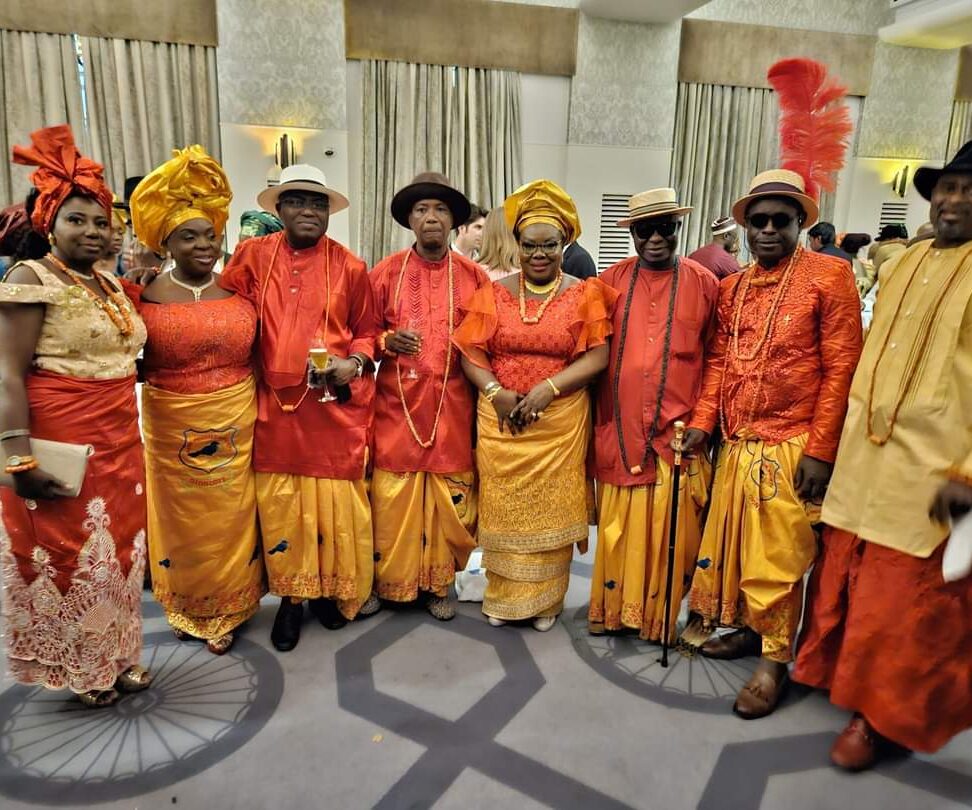
The Itsekiri people have many unique cultural traditions, customs, and ways of life that have endured for centuries.
Culture
The Itsekiris used to live in a society ruled by a monarchy (the Olu) and a council of chiefs known as the nobility or aristocracy. Itsekiri society was organized along the lines of an upper class made up of the royal family and the aristocracy, the ‘Oloyes and Olareajas’. These were primarily drawn from noble houses, including the Iyatsere (defense minister) and Royal Houses, and the Houses of Olgbotsere (Prime Minister or kingmaker).
The Omajaja, or middle class, were free-born Itsekiris or burghers. As a result of the institution of slavery and the slave trade, there was a third class known as ‘Oton-Eru,’ or descendants of the slave class, whose ancestors had arrived from elsewhere and resided in Itsekiriland as indentured or slave laborers. The slave class no longer exists in modern-day Itsekiri society, as all are considered free-born.
Culturally, the Itsekiri people value family, community, and their maritime heritage. Traditional festivals, dances, and songs are still commonly practiced. However, Christianity and Western influence have also shaped modern Itsekiri culture. A mixture of traditional and Western dress, food, music, and lifestyle can be observed among the Itsekiri today.
Attire
Itsekiri men traditionally wear a long-sleeved shirt known as a Kemeje, a George wrapper tied around their waist, and a hat with a feather pinned to it. The women wear a blouse and a George wrapper tied around their waist. They wear brightly colored headgear known as Nes (scarves) or coral beads. Itsekiris are also known for their traditional fishing abilities, beautiful songs, gracefully flowing traditional dances, and colorful masquerades and boat regattas.
Marriage
Temotsi (Itsekiri meaning traditional marriage) or customary marriage. The Itsekiri see Temotsi as a family matter, and whether an Itsekiri marries another Itsekiri or someone from another tribe, the relationship is believed to be between the families, not simply the couple. Temotsi signifies a single marriage in the couple’s lifetime since the Itsekiri people do not believe in divorce unless there are issues that the families cannot address.
Traditional Itsekiri marriage customs are still commonly practiced. Suitors must visit the bride’s family to declare their intentions, often bringing gifts like yams or palm oil. If accepted, the suitor’s family will negotiate a bride price. On the wedding day, the bride travels to the groom’s village, where women from both families perform traditional dances, after which the couple completes the marriage rites.
Cuisine
Staple Itsekiri foods include starch dishes like pounded yam, rice, Obe Eyen biri usin (Banga Soup and Starch), and Gbagbafofo. Palm oil and chili peppers are frequently used. Common proteins include shrimp, crab, snail, and bushmeat like grasscutter. Beverages include palm wine and herbal teas.
Occupation
Itsekiri people have a long history of trade and commerce. Itsekiri inhabit an area with large mangrove swamps and freshwater wetlands along the coast. They were mostly fishermen who used traps, fences, nets, and rod-and-line techniques. Women construct mats and baskets out of reeds and palm leaves. They also traded by selling palm oil, slaves, and rubber.
Today, many Itsekiri individuals own and operate successful businesses in sectors like oil and gas, finance, and real estate. The Itsekiri town of Warri is an important commercial hub and port city.
The Itsekiri have a rich cultural heritage full of unique traditions, festivals, food, and religious beliefs that provide a glimpse into their history and way of life. The modern Itsekiri people make up an important ethnic group in southern Nigeria. As one of the major groups in the Niger Delta region, the Itsekiri play an influential role in Nigeria’s economy and politics today.
The Ethnic flag of the Itsekiri people
The flag of the Itsekiri people features two horizontal bands: red and white, a crown, and swords.
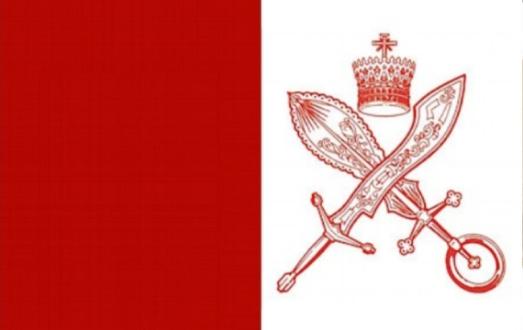
The Itsekiri flag is a source of pride for the Itsekiri people. It highlights key aspects of their history, culture, and identity. The flag serves as an important symbol of Itsekiri unity, courage, and self-governance. It is displayed during cultural festivals, coronation ceremonies, and other significant events.
Notable People From Itsekiri
The Itsekiri people have produced many notable individuals who have made significant contributions to Nigeria’s development. Here are some of the most well-known Itsekiri people:
- Ogiame Atuwatse III (Current Olu of Warri Kingdom)
- Omawumi Megbele (musician)
- FOM Atake, Nigerian Judge (1967–1977) and Senator of the Federal Republic of Nigeria (1979-1982)
- Eyimofe Atake (Senior Advocate of Nigeria)
- Ikenwoli Godfrey Emiko (Olu of Warri Kingdom)
- Oritse Femi (musician)
- Festus Okotie-Eboh (politician, first Nigerian finance minister)
- Nana Olomu (chief and merchant from the Niger Delta region)
- Arthur Prest (Nigeria’s first Minister of Communications, High Court Judge and High Commissioner to the UK)
- Florence Omagbemi – Nigeria U20 female football team coach and former player for the Super Falcons.
- Alfred Rewane (businessman and a financier of NADECO)
- Sunday Tuoyo (Nigerian brigadier general and military governor of Ondo State)[
Are the Itsekiri People Related to the Yoruba people?
The Itsekiri people share some cultural similarities with the Yoruba due to intermingling, but the Itsekiri maintain a distinct ethnic identity. Their kingdom was founded in the 15th century by Prince Ginuwa from the Benin Kingdom. The Itsekiri language is also distinct from Yoruba.
Conclusion
So there you have it, a glimpse into the rich history, culture, and language of the Itsekiri people. As one of the major ethnic groups in southern Nigeria with a history spanning over 500 years, the Itsekiri have a compelling story to tell. Their language, customs, art, and oral traditions provide a window into a vibrant culture that has persevered for centuries. Next time you hear about the Niger Delta region or Warri city in Nigeria, think of the Itsekiri people. Their mark on the region is indelible, and their cultural legacy is profound. Understanding groups like the Itsekiri provides insight into the diversity and complexity of Nigeria, Africa’s most populous country. So, take some time to appreciate the history and heritage of this fascinating ethnic group.

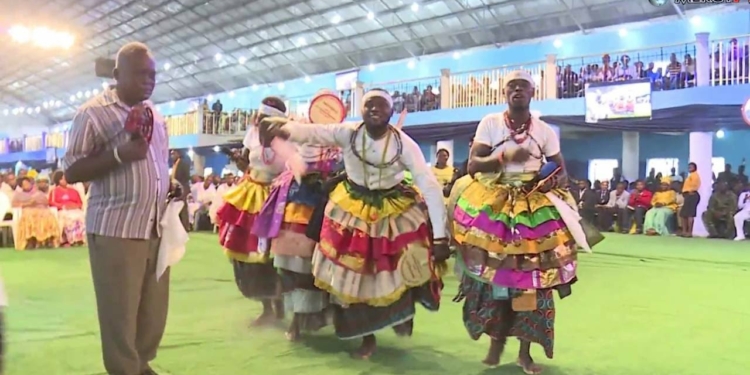
Discussion about this post